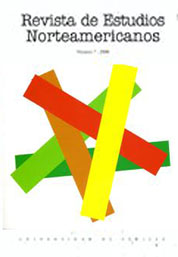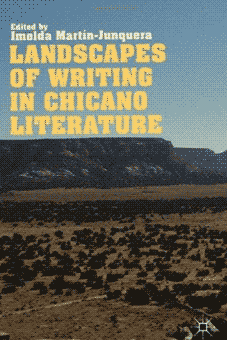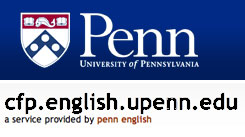Welcome to SAAS
Call for Papers website provided by the Department of English at the University of Pennsylvania
REN: Revista de Estudios Norteamericanos

Ana Manzanas & Jesús Benito, Cities, Borders and Spaces in Intercultural American Literature and Film

Landscapes of Writing in Chicano Literature (2013), Ed. by Imelda Martín Junquera.

Call For Papers for Our Next Conference
"A Return to (What Never Was) Normal: Discourses of (Ab)Normalcy in US Culture, Literature, Arts, and Politics; Past, Present, and Future"
PANEL 6
6) "(Ab)Normal Humor? Literary/Cultural Manifestations and Interpretations of Humor in the US (and Beyond)"
Panel Chair: Carolina Núñez-Puente, Universidade da Coruña
E-mail: c.nunez@udc.es
In the last few years, the term "normal" has acquired positive connotations. This is understandable given the COVID-19 crisis and the generalized wish to return to a pre-pandemic state. Nonetheless, as denounced by feminism, queer theory, and other schools of thought, the word "normal" also has connotations that can be negative if not detrimental to the so-called "abnormal." The OED defines "normal" as being "physically and mentally sound," "heterosexual" and even "rectangular"; "abnormal," as one would expect, is thus something/someone "that is undesirable or prejudicial" and that reveals as "contrary to the … system" among other abnormalities. In this state of affairs, should humor be deemed normal (e.g., as an ally of health) or abnormal (e.g., as a tool of dissent)?
Regarding classic scholarship, if Bergson (1911) thinks that humor is a social corrective, Bakhtin (1965) celebrates its potential for social protest; for today's scholars, although humor seems to be a "normal" feature of postmodern literature (Fernández Santiago 2003), not all forms of comicality are necessarily "healthy" (Núñez-Puente 2020). Therefore, it appears that humor is a complex, controversial, and captivating topic that invites inquiry, for instance, in the following areas:
• "High culture": what are authors, readers, directors, and publics laughing at nowadays? Is there a change in the pre- and post-pandemic production and reception of humor?
• "Popular culture": how does the humor used in social networks, TV shows, etc. help us bear the current sanitary and other crises? Do these forms of humor influence the (ab)normalization of society?
• Theoretical perspectives: when approaching humor, should we be moral, amoral, immoral or ethicist? For instance, can certain jokes (featuring racism, ableism, etc.) contribute to normalize injustice and so deserve to be banished?
• Comparative analyses: has the US's socio-economic and cultural projection normalized the ways different ethnicities make humor around the world?
Works Cited
Bakhtin, Mikhail. Rabelais and His World. Translated by Helene Iswolsky, M.I.T, 1965.
Bergson, Henri. Laughter: An Essay on the Meaning of the Comic. Translated by Cloudesley Brereton and Fred Rothwell, MacMillan, 1911.
Fernández Santiago, Miriam. The (Il)Logics of Postmodern Humor. Universidad de Huelva, 2003.
"Humour." Oxford English Dictionary, 2021,
Núñez-Puente, Carolina. "Humor, Gender, and Sex(uality) in Text and Film: Incredible Shrinking Men from Mark Twain to Lorrie Moore." Lectora: Revista de dones i textualitat, no. 26, 2020, pp. 133-50.
GUIDELINES FOR PARTICIPANTS
Abstracts of Proposals are to be e-mailed directly to the chair of the selected panel using this form. The deadline for submitting abstracts is October 15, 2022. Panel chairs are expected to accept/reject proposals and have panels set up by November 7.
Non-members of SAAS (of all nationalities) are welcome to participate in the conference, but will be required to pay membership dues for one year as well as the conference registration fee. Members of ASA (American Studies Association), AISNA (Associazione Italiana di Studi Nor-Americani), APEAA (Portuguese Association for Anglo-American Studies) and HELAAS (Hellenic Association for American Studies) need only pay the conference registration fee.
Further guideliness for participants can be found here.








